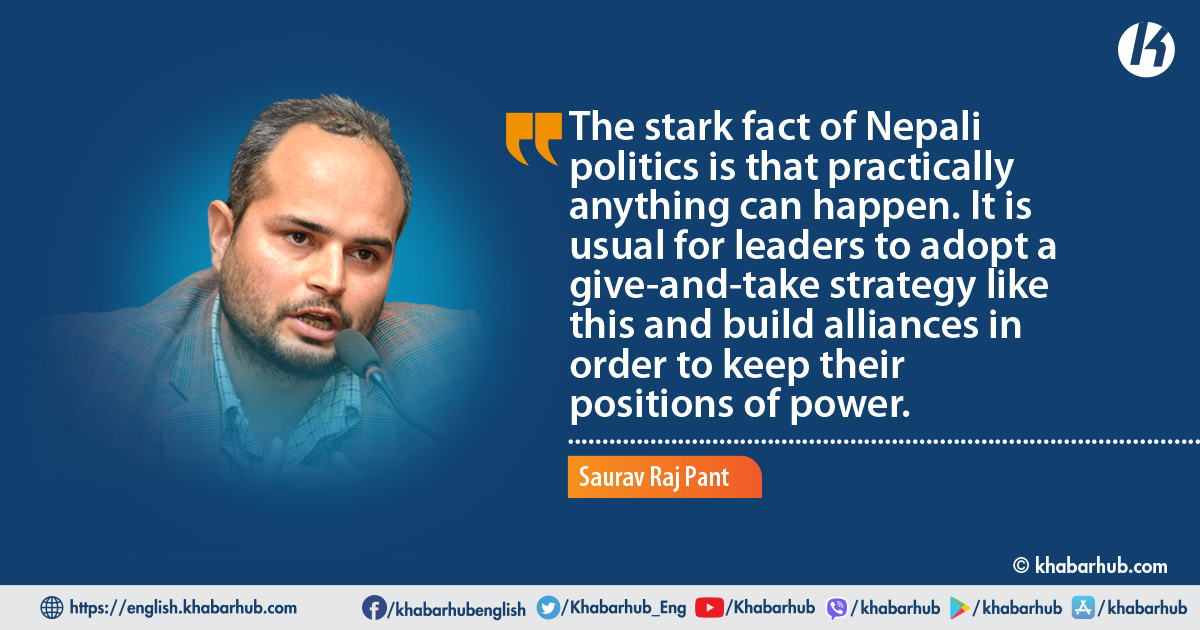Prime Minister Pushpa Kamal Dahal Prachanda has taken center stage in Nepal’s political arena, which has been a cauldron of intrigue and scandal.
Despite being perceived as the representative of corruption himself, Prachanda’s recent efforts to handle scandals including the Lalita Niwas land grab case, the fake Bhutanese refugee fraud, and gold smuggling have drawn appreciation, criticism and questions.
With only 32 members in the House of Representatives, Prachanda’s intentions and tactics are being examined.
Interest and skepticism have both been raised in relation to Prime Minister Prachanda’s efforts to uncover corruption files on numerous fronts.
Prachanda wants to change his public image and put pressure on his rivals by making these efforts. The plan is obvious: by portraying a harsh stance against corruption, he seeks to win over the people and make it difficult for coalition allies to overthrow his administration. Prachanda’s political savvy emerges as he deftly maneuvers his way through this challenging environment.
Diplomacy with India
The diplomacy of Prime Minister Prachanda, especially in light of his most recent trip to India, is one of the most interesting parts of his administration.
The importance of his obligations is emphasized by the detailed examination of his leadership and the evaluation of his actions in light of his prior experiences.
He succeeded in bringing economic goals to the forefront of Nepal-India ties during this tour. Prachanda showed a proactive approach to fostering regional cooperation by addressing difficulties like cross-border payments and power sales to Bangladesh.
These initiatives have inspired optimism because they provide viable paths for cooperation and economic prosperity.
Prachanda’s venture into diplomacy demonstrates his desire to put the needs of the country first, while navigating a challenging political environment.
In addition to this, the seemingly “political” action made during Prime Minister Prachanda’s tour to India drew the attention of many observers. He was viewed as making a political move when he went to the Maha Kaleshwor Temple to perform puja.
Prachanda has shown a readiness to use a variety of tactics in the competitive realm of politics, even if they are intended for the general public.
This versatility was further demonstrated when, upon becoming Prime Minister, he decided to wear the Daura Suruwal, the national attire of Nepal for the first time. It demonstrates his readiness to go above and beyond for the sake of his political goals.
Following his visit, Prachanda spoke over the phone with the Indian Prime Minister, demonstrating his commitment to enhancing ties between India and Nepal.
This action demonstrates his dedication to building a revitalized spirit of comradery and collaboration between the two countries.
The phone call highlights Prachanda’s resolve to actively pursue diplomatic efforts as well as giving the two countries’ relations a new lease on life.
This proactive approach has given Nepal-India ties a sense of life, encouraging an atmosphere of optimism and possible cooperation.
Obtaining power through blood
In contrast to other leaders who have obtained power through various non-blood means, Prachanda’s rise to power was marked by bloodshed and the loss of thousands of lives.
Despite the fact that Nepal’s political environment continues to be unpredictably unstable and subject to varied deals and concessions.
Due to his violent past, he bears a heavy burden of responsibility, which makes the public more wary of his dedication to growth and progress.
While other leaders frequently rely on their oratory skills and ability to engage the people to win support, Prachanda’s bloody ascent to power has raised demands for demonstrable advancements and outcomes.
The importance of his obligations is emphasized by the detailed examination of his leadership and the evaluation of his actions in light of his prior experiences.
Give and take for power
Politicians are eager to enter into agreements and concessions in order to maintain their positions of power.
The stark fact of Nepali politics is that practically anything can happen. It is usual for leaders to adopt a give-and-take strategy like this and build alliances in order to keep their positions of power.
However, Prachanda’s latest initiatives, particularly his campaign against corruption and his diplomatic outreach to India, have been praised by a number of stakeholders.
His readiness to confront these difficulties head-on demonstrates his dedication to dealing with pressing problems and upholding a certain standard of honesty in his leadership.
His proactive efforts to combat corruption and foster diplomatic relations are well received, marking a change from the usual and perhaps a turning point.
Conclusion
A complex understanding of his leadership is made possible by his willingness to use a variety of strategies, his history of gaining power through violence, and his dedication to fighting corruption and fostering goodwill with India.
Prachanda’s recent initiatives have inspired optimism and a renewed vision on the future of the country.
Despite the fact that Nepal’s political environment continues to be unpredictably unstable and subject to varied deals and concessions.
He continues to influence Nepal’s political development as he navigates the difficulties of leadership.
(The views expressed in this article are those of the author and do not necessarily reflect the official policy or position of Khabarhub)









Comment